Hiroshima International University is a private university located in Hiroshima City, Hiroshima Prefecture, Japan, and was established in 1998. The university aims to cultivate talents with international vision and high professionalism, with a special focus on education and research in the fields of medicine, welfare, psychological science and engineering. The following is a detailed introduction to Hiroshima International University, including its history, subject settings, educational characteristics, campus facilities and other information.
Basic Information
Name: Hiroshima International University (Japanese: Hiroshima International University, Hiroshima Kokusai Daigaku)
English Name: Hiroshima International University
Abbreviation: Hiroshima International University
Address: 555-36, Kurose Gakuendai, Higashihiroshima City, Hiroshima Prefecture
Establishment time: 1998
Type: Private University
History
1998: Hiroshima International University was officially established, and initially focused on medical and welfare education.
2000s: Gradually expand the scope of education, add new disciplines and majors, and enhance scientific research capabilities.
2010s to present: Further strengthen international education, establish cooperative relations with universities in many countries, and enhance academic influence.
Discipline settings
Hiroshima International University has multiple departments and disciplines, covering multiple fields such as medicine, welfare, psychological science and engineering. The specific discipline settings are as follows:
Faculty of Health and Medical Sciences
Diagnostic Radiology Discipline: Cultivate professionals with diagnostic radiology technical knowledge and practical ability.
Clinical Engineering Discipline: Cultivate professionals with clinical engineering technical knowledge and practical ability.
Physical Therapy Discipline: Cultivate professionals with physical therapy knowledge and practical ability.
Faculty of Medical Welfare
Medical Welfare Discipline: Cultivate professionals with medical welfare knowledge and practical ability.
Faculty of Psychological Sciences
Psychology: Cultivate professionals with psychological knowledge and research ability.
Faculty of Engineering
Engineering Discipline: Cultivate professionals with engineering knowledge and practical ability.
Graduate School Settings
Graduate School of Health and Medical Sciences
Major in Diagnostic Radiology: Cultivate professionals with advanced knowledge of diagnostic radiology technology and research capabilities.
Major in Clinical Engineering: Cultivate professionals with advanced knowledge of clinical engineering technology and research capabilities.
Major in Physical Therapy: Cultivate professionals with advanced knowledge of physical therapy and research capabilities.
Graduate School of Medical Welfare
Major in Medical Welfare: Cultivate professionals with advanced knowledge of medical welfare and research capabilities.
Graduate School of Psychological Sciences
Major in Psychology: Cultivate professionals with advanced knowledge of psychology and research capabilities.
Graduate School of Engineering
Major in Engineering: Cultivate professionals with advanced knowledge of engineering and research capabilities.
Educational Features
Practical Education: Emphasizes the combination of theory and practice, provides rich internships and practical activities, and helps students accumulate practical work experience.
International Education: Actively promotes international education, has established cooperative relationships with universities in many countries, and provides overseas exchange programs.
Professional Training: Focuses on students' professional skills training, and cultivates professionals with a solid theoretical foundation and practical ability.
Career support: There is a dedicated career guidance center that provides services such as career planning, employment consultation and internship recommendations.
Campus facilities
Library: It has rich book resources and a modern reading environment.
Laboratory: Equipped with advanced experimental equipment to support scientific research and practical teaching.
Sports facilities: Including gymnasiums, sports fields, etc., to promote students' physical and mental health.
Student dormitories: Provide comfortable accommodation environment to facilitate students' life and study.
Research Center
Medical Research Center: Research various issues in the medical field and provide support for medical services.
Welfare Research Center: Research various issues in the welfare field and provide support for social welfare.
Psychological Science Research Center: Research various issues in the psychology field and provide support for mental health.
Engineering Research Center: Research various issues in the engineering field and provide support for engineering technology.
Student activities
Club activities: There are many student clubs covering academic, cultural, sports and other fields.
Volunteer activities: Encourage students to participate in community service and social welfare activities to cultivate a sense of social responsibility.
Admission requirements
Entrance examination: Usually includes written examination and interview. Please refer to the school's official website for specific requirements and procedures.
International students: Accept international students' applications, and they must meet language proficiency and other relevant requirements.
Contact Information
Tel: +81-823-70-4500
Fax: +81-823-70-4501
Email: admission@hiu.ac.jp
School Motto
Spirit of the School: To cultivate talents with high professional quality and practical ability, and to contribute to the development and progress of society.
Educational Philosophy: Focus on the cultivation of comprehensive quality and professional knowledge, and strive to cultivate talents with social responsibility and leadership.
Featured Courses
Diagnostic Radiology Department: The "Diagnostic Radiology Department" is specially set up to cultivate students' diagnostic radiology technical knowledge and practical ability.
Clinical Engineering Department: Provide "Clinical Engineering Department" to help students master clinical engineering technical knowledge and practical ability.
Physical Therapy Department: Provide "Physical Therapy Department" to help students master physical therapy knowledge and practical ability.
Medical Welfare Department: Provide "Medical Welfare Department" to help students master medical welfare knowledge and practical ability.
Psychology Department: Provide "Psychology Department" to help students master psychology knowledge and research ability.
Engineering: Provides "Engineering" to help students master engineering knowledge and practical skills.
Employment situation
Employment rate: Hiroshima International University has a high employment rate for graduates, and many graduates have found satisfactory jobs in medical institutions, welfare institutions, enterprises and government agencies.
Notes
Reputation: Hiroshima International University enjoys a good reputation in Hiroshima Prefecture and throughout Japan, especially in the fields of medicine, welfare, psychological science and engineering.
Further studies: Graduates can choose to continue their studies in graduate school or other higher education institutions, or they can directly enter the workplace.
The above is a basic introduction to Hiroshima International University. If you have more specific questions or need detailed information, it is recommended to visit the school's official website or contact the relevant department of the school directly.
-
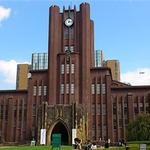
The University of Tokyo
-
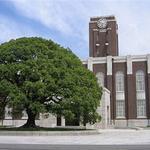
Kyoto University
-
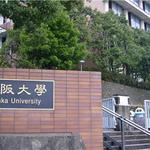
Osaka University
-
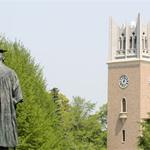
Waseda University
-
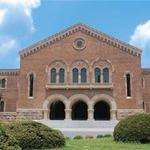
Hitotsubashi University
-
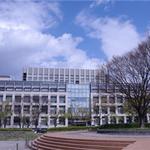
Nagoya University
-
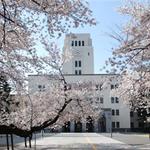
Tokyo Institute of Technology
-
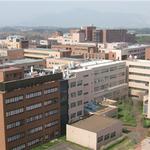
University of Tsukuba
-
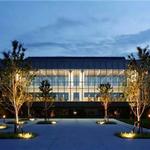
Keio University
-
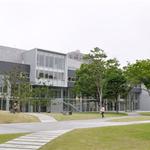
Tohoku University
-

Mesoamerican University
-

Istmo University
-

Mariano Galvez University of Guatemala
-

Regional University of Guatemala
-

Galileo University
-

Francisco Marroquín University
-

Rafael Landívar University
-

University of the Valley of Guatemala
-

University of San Carlos of Guatemala
-

Technological Institute of Tlaxcala Plateau
-

Golfo University
-

Technological University of South Sonora
-

Technological University of Huejotzingo
-

Tizimín Institute of Technology
-

Chilpancingo Institute of Technology

